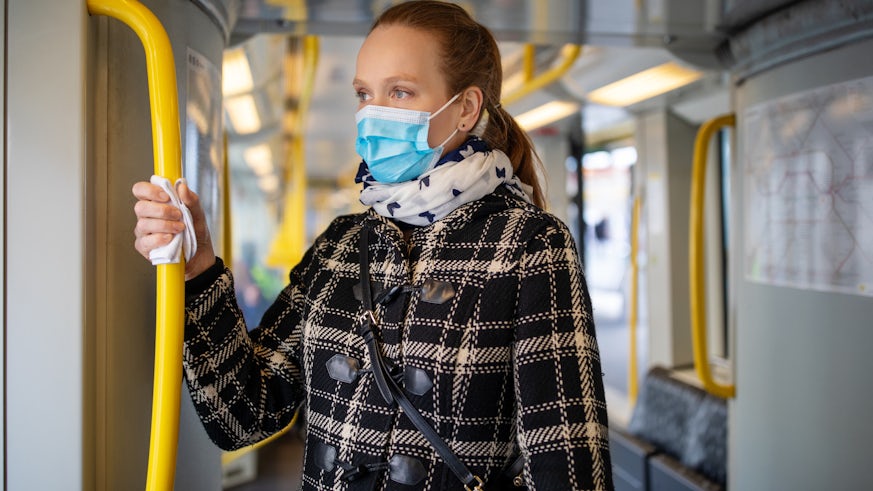New app to implement social distancing on public transport
4 August 2020

An app that allows companies to optimise social distancing measures on public transport has been created by a group of Cardiff University students.
The app, created by three mathematics PhD students, can be used by public transport companies to implement seating plans or by passengers to select a safe seat in which to sit.
The app has been built using a so-called “greedy algorithm” to calculate the optimum number of people that could sit on a train carriage, as well as the optimal seating arrangement that adhered to current social distancing measures.
Furthermore, the app is also able to calculate the CO2 emissions of a given scenario, allowing a user to find the most environmentally friendly seating plan in a quick and easy way.
“At normal capacity, public transport is more environmentally friendly than travelling by car as the amount of CO2 produced per passenger is much lower overall,” said Josh Moore, a member of the team.
“However, under social distancing conditions, and assuming that any unfilled seats correspond to a commuter driving to work instead, diesel-powered public transport produces more C02 emissions per passenger than a small car.”
Using a class 150 diesel engine train that is popular in South Wales as an example, the students calculated using the app that the train would need 17 passengers per carriage to make it more environmentally friendly than a small car.
However, under conventional social distancing measures, whereby people are sat more than 2 meters apart, the carriage would only be able to seat 16 passengers.
One of the many benefits of the app is that other social distancing measures, such as the implementation of plastic screening, can also be included in the calculations.
Using the scenario above, the team showed that with plastic screening included, the carriage would be able to seat 38 passengers, therefore making it a much more environmentally friendly option.
The app was conceived by the three PhD students as part of a national ‘Hackathon’ competition organised by the Natural Environment Research Council (NERC) to find solutions to societal problems post-Covid-19.
The students won first prize in the competition, scooping up a £3,000 reward. The app took a total of 5 days to build and is based on a mathematical problem known as ‘sphere packing’.
Team member Lucy Henley said: “The calculation works by trying to fill in passengers from the back of the train, putting the first passenger in the first seat.
“The app then draws a social-distancing bubble around the passenger. Other seats that are inside the bubble cannot be used, so they're ignored and the next passenger is put in the next available seat.
“This process is repeated until all seats are either filled or designated as empty. This is known as a greedy algorithm – it doesn't consider all seats at the same time, it just chooses the next available seat.”
The app is currently open-source and can be extended to include different carriage designs and sizes and also allow passengers to input which seats in their carriage are taken, so the app can advise which is the safest seat for them to choose.
Team member Timothy Ostler said: “As lockdown measures continue to be relaxed, more people will travel for work and leisure, increasing demand for public transport.
“If these services are ramped up without adding more protective measures, trains and buses could operate at a significant financial loss, while negating any benefits for the environment.”
Share this story
The School is committed to excellent teaching, scholarship and research, and to supporting its students to fulfil their academic potential.





